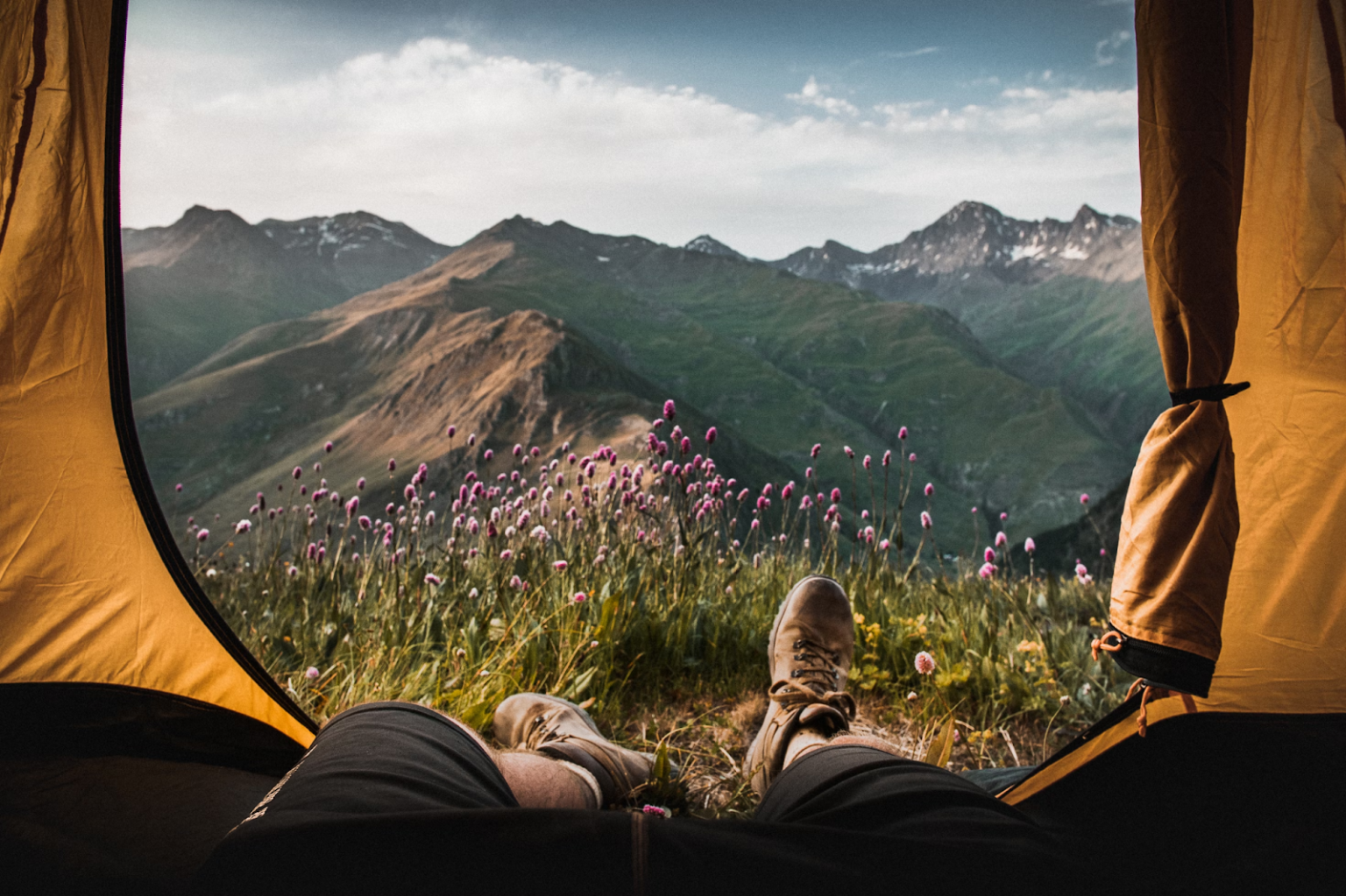Essential Supplies for an Unforgettable Off-Grid Camping Journey
Preparing for a camping trip often involves juggling multiple checklists to ensure nothing is forgotten. However, sometimes the act of simply packing the essentials can be the gateway to a truly liberating outdoor experience, where the less we carry, the more we gain from nature’s embrace.
Andy Halliday, owner of The Expert Camper, offers his insightful perspective on maximising outdoor adventures through efficient gear selection and minimalist camping techniques.
Durable Tent
A durable tent is essential for camping because it provides shelter and protection from the elements, ensuring a comfortable and safe experience outdoors. A sturdy tent can withstand strong winds, rain, and other adverse weather conditions, keeping you dry and secure throughout your trip.
Investing in a durable tent means you can rely on it for multiple camping adventures without worrying about it failing when you need it most.
Water Filtration System
Bringing a water filtration system on a camping trip ensures access to safe and clean drinking water, even from natural sources like streams or lakes, reducing the need to carry large quantities of water. This lightweight and portable solution removes harmful bacteria, parasites, and other contaminants, safeguarding against waterborne illnesses and providing peace of mind during outdoor adventures.
With a water filtration system, campers can stay hydrated and enjoy their journey without concerns about the quality of available water sources.
Sleeping Bag
Sleeping bags are crucial for any camping trip as they provide insulation and warmth, helping you stay comfortable and sleep well in varying temperatures and conditions. A quality sleeping bag constructed with durable materials can withstand wear and tear from regular use and rough terrain, ensuring it remains reliable for many camping trips.
Portable Stove or Grill
A portable stove or grill for camping allows you to prepare hot meals regardless of your location. A sturdy stove or grill can withstand the rigours of outdoor use, including exposure to heat, moisture, and rough handling, ensuring it remains functional throughout your camping trips.
There isn’t one that’s necessarily better than the other, most off-grid campers will often choose a portable stove since there are slightly more options what it can be used for. For example, it’s easier to make coffee in a moka pot on a portable stove than it is to use a grill.
But regardless of your choice, if you’re planning on making coffee, just keep in mind that not all coffee works for being out in nature (regardless of temperatures), so you might want to look into a coffee brand like Contact Coffee Co that was specifically made for the great outdoors.
Having a portable stove or grill also gives you the ability to eat a more diverse set of meals while on your “off grid” trip.
First Aid Kit
Having a first aid kit on a camping trip is crucial as it provides essential medical supplies to address minor injuries and emergencies that may occur in remote outdoor settings.
From treating cuts, scrapes, and insect bites to more serious incidents like sprains or burns, a first aid kit allows for prompt and proper care, reducing the risk of complications and promoting swift recovery. Additionally, in the event of unexpected emergencies or delays, a well-equipped first aid kit can be invaluable in providing temporary relief until professional medical help can be reached.
Navigation Tools
Navigation tools are so important for camping trips to help you find your way through unfamiliar terrain, preventing getting lost and ensuring a safe return to your campsite or destination. Tools like a map and compass provide reliable guidance, even when electronic devices fail due to battery depletion or signal loss.
Additionally, GPS devices or smartphone apps with offline maps can complement traditional navigation tools, offering additional convenience and accuracy in route planning and tracking.
Andy’s Planning and Prep Tips
Select Remote and Secluded Locations
When selecting remote and secluded locations for camping, prioritise areas that offer solitude and immersion in nature, away from crowds and urban noise. Ensure that the chosen spot complies with local regulations and safety guidelines, and consider factors like accessibility, terrain, and available amenities to enhance your camping experience.
Practise Leave No Trace Principles
Practising Leave No Trace principles is vital to minimise your environmental impact while camping. Remember to pack out all trash, avoid damaging vegetation, and leave natural areas as you found them to preserve their beauty and ecological integrity for future generations.
Embrace the Simplicity of Nature
Take time to savour quiet moments, observe wildlife, and engage in activities like stargazing or hiking, fostering a deeper connection with the natural world and fostering a sense of tranquillity and rejuvenation.
Pack Lightly and Compact Gear
Packing lightly and compacting gear reduces the physical burden of carrying heavy loads and allows for easier mobility in outdoor environments. Streamlining your packing list not only reduces stress but also enhances your ability to explore and enjoy the outdoors with greater freedom and flexibility.
Andy expresses, ‘Pack light, prioritise essentials, and let nature’s simplicity guide your memorable camping experience.’



